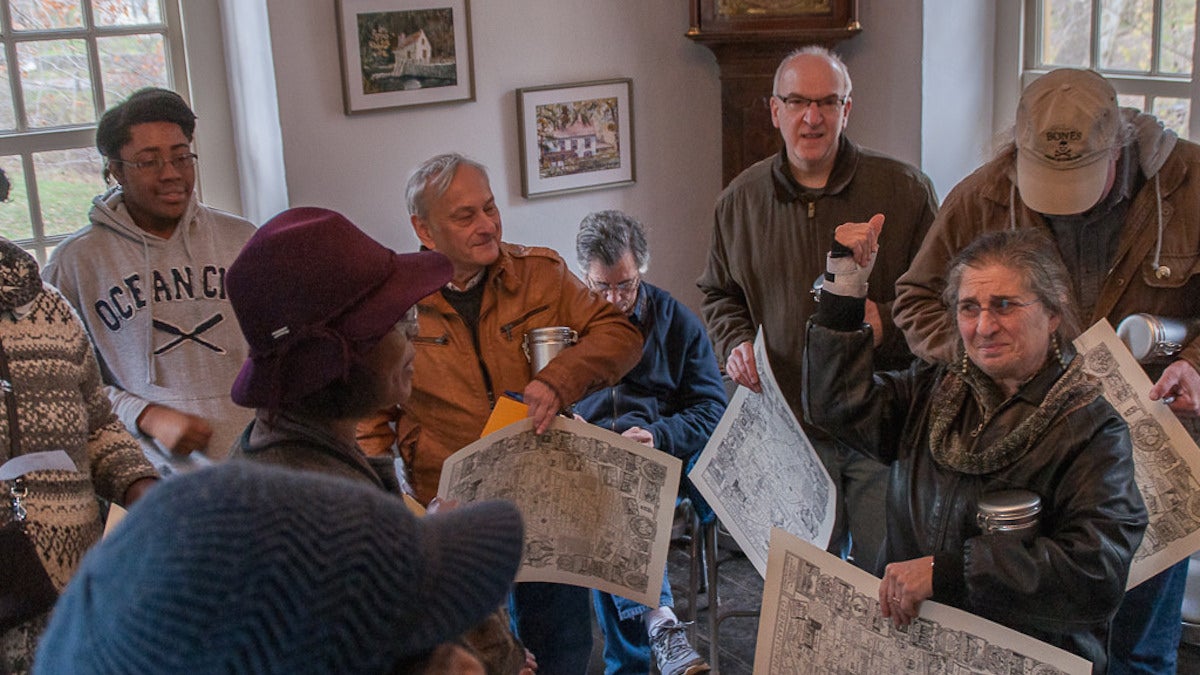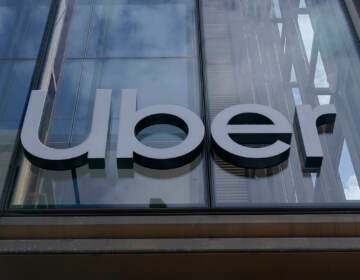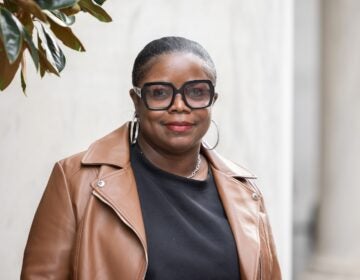‘Elephants on the Avenue’ examines class, race in Northwest Philly through arts workshops

Historic Germantown's first Elephants on the Avenue workshop in October.(Courtesy of Historic Germantown, Tieshka Smith)
The Historic Germantown consortium is hosting a two-year series of free workshops and other events to explore themes of class, race and community.
Funded by a $131,000 Pew arts grant, “Elephants on the Avenue: Race, Class and Community in Historic Germantown” is an interactive discourse and collaboration between renown artists, noted historians and the general public.
The idea is to offer a way other than town hall meetings and protests to broach often complex topics, while keeping it specific to the Germantown community, said Trapeta Mayson, Executive Director of Historic Germantown.
“We want to provide a safe platform for discussion,” she said.
Artistic intervention
The project came together after the consortium completed its strategic plan last year and identified a need not only to increase visitors, but to better engage the community by making history relevant.
Mayson says while class and race are heavy and complicated subjects, she has noticed in her roles as both community leader and neighbor a tendency for them to be ever-present on the fringe of daily life in Germantown.
“I hear a lot of ‘they’ and ‘us’ and ‘them’ at community meetings,” she said.
Fostering dialogue through the arts seemed the most logical thing to Mayson, who is herself a literary artist.
She said the project is part outreach plan and part artistic intervention. The intention isn’t to solve problems, but, rather, bring the community together to reframe historical narratives by honoring their own.
“The overarching Germantown story is this pursuit of freedom, whether by withholding it or fighting for it,” Mayson said.
Free arts and history workshops
Six visual artists and poets, Benjamin Volta, Ife Nii Owoo, Diane Pieri, Barbara J. Bullock, Yolanda Wisher and Sonia Sanchez will partner with four historians, Thomas Sugrue, Matthew Countryman, Molefi Assante and Abigail Perkiss and trained facilitator, Patricia Scott-Hobbs to helm the creative workshops.
The remaining 10 sessions will be held every second Saturday and attendence will be capped at between 25 to 35 participants, except for two workshops at Awbury Arboretum with artist Benjamin Volta.
Volta’s workshops are open to more than 75 participants, in order to create a large scale work.
A video booth will be present at each workshop where participants can share what they’ve gained from the experience and talk about what “Elephant on the Avenue” means to them. The video clips will be shared as part of a social media campaign (#HGelephants) and will later be compiled to create a 10-minute documentary.
Each artist is also tasked with making their own interpretation of the theme, which will be shown in a group exhibition, curated by Renny Molenaar of Germantown’s iMPeRFeCT Gallery at the project’s conclusion in 2017.
Other events
The project also features two special invitation-only community breakfast events in April. With historian and facilitator led-activities, the breakfasts will include community ledaers and members of the neighborhood not usually present at the table, Mayson said.
On May 14, Historic Germantown will host a community festival with free trolley rides to historic sites, live entertainment and more at its annual Season Opener.
Mayson says a schedule of all future events is in the works and will be posted to website in the coming weeks.
The first workshop of the year (and second in the series), Behind Closed Doors: Hidden Stories and Truths, will be held at La Salle University Art Museum on Saturday, Jan. 9 at 10 a.m.
Collage artist and graphic designer Ife Nii Owoo will team up with historian Abigail Perkiss to guide attendees in an examination of the motif of inclusion and seclusion using a three-dimensional collage art-making process called tunnel books.
Mayson says the first workshop, led by Yolanda Wisher in October, was a great start with many participants expressing that they became very moved upon learning that their own stories have value.It is also a first step in many to come as Historic Germantown re-imagines itself as an institution.
“It’s a big project — big in sense that, as organization, we can lay a foundation,” she said.
WHYY is your source for fact-based, in-depth journalism and information. As a nonprofit organization, we rely on financial support from readers like you. Please give today.




